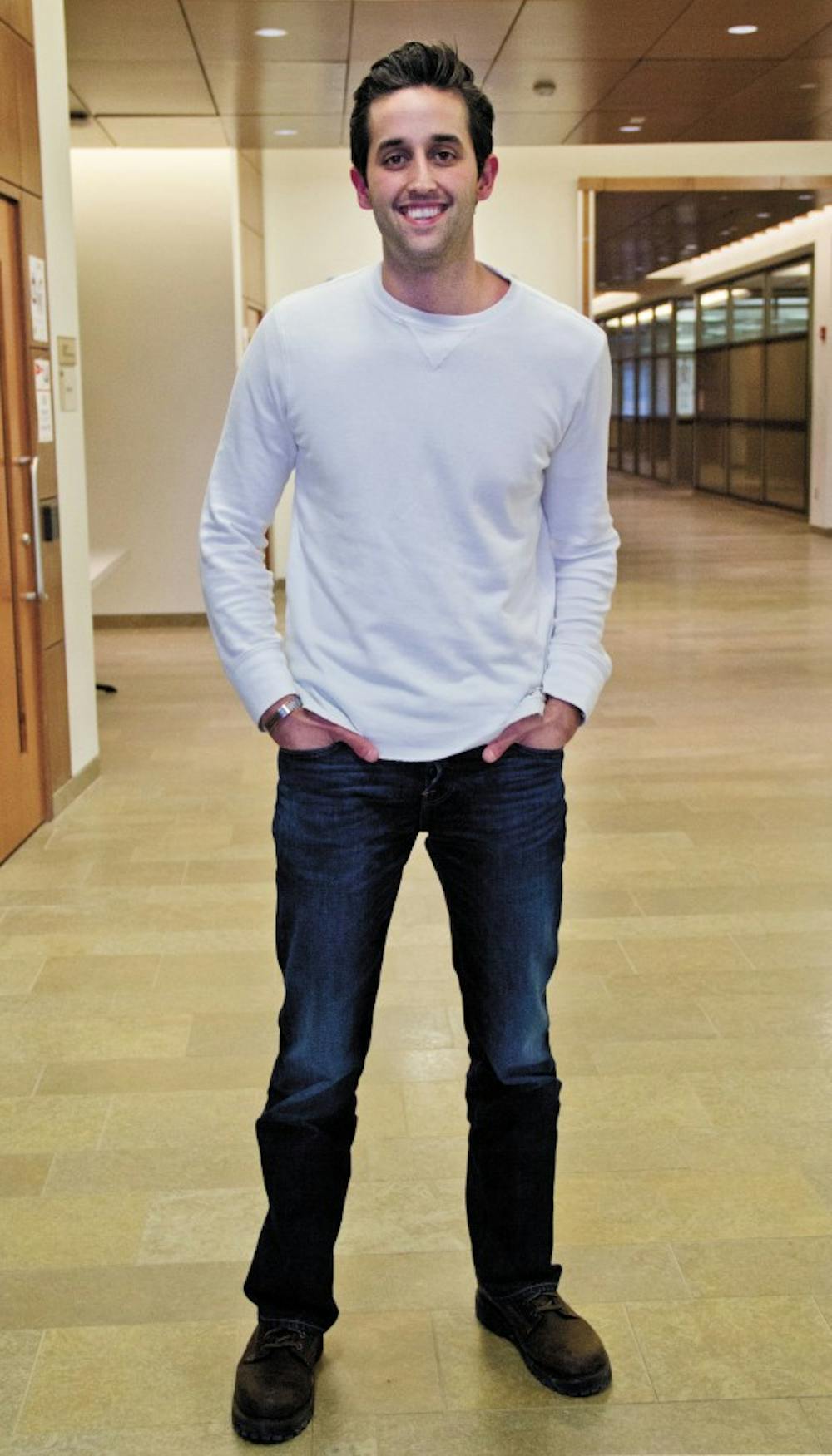Business in Medicine a need for medical sudents

With the help of two other College of Medicine students, Nick Cozzi is forming a partnership between Central Michigan University's business and medical colleges.
The student organization, Business in Medicine, was started by Alexander Ghannam, Christopher Khaery and Cozzi after noticing a void in the medical school. To fill the void the students placed an emphasis on positive business models for successful primary care practices.
¨My goal is to integrate my business experience into my medical school training," Cozzi said. "We are trying to show business practices that students can utilize when they go to open their own practices.¨
A Chicago native, Cozzi is a first-year medical student who graduated from the University of Wisconsin-- Madison with a degree in Neurobiology in 2012. He received his Master of Business Administration from Saint Xavier University in Chicago in 2013. The combination of disciplines was inspired by Cozzi’s passion for innovative healthcare business practices.
¨There's an old adage that says, ‘healing is an art, medicine is a vocation, and healthcare is a business'," he said. "The real challenge for physicians of tomorrow, like myself and my colleagues are, how do we integrate that? I think looking at novel business solutions and integrating them into reality are going to make our respective practices sustainable.¨
CMED’s mission is to place primary care physicians in rural and underserved areas in Michigan. Cozzi said there is a need to educate medical students on sound business practices, so they can be prepared to run their own offices.
"We’re finding ways to bring in physicians who have paid off their loans and are successful," Cozzi said. "If you can find an opportunistic void and fill it with something you could also be successful.¨
In order to provide examples of physicians serving rural areas the group holds events where speakers provide business advice. In the fall, Business in Medicine hosted an event with Lee Cockerell, a retired Disney vice president of operations, who talked to medical students about the importance of putting patient care and concerns first.
Interning with the United States Secret Service, during the 2012 U.S. Presidential Election taught Cozzi how the agency’s motto of being "Worthy of Trust and Confidence" can apply to patients.
¨How do we do that? What we are (myself, Alex Ghanam, Chris Khoury) trying to do in the Business in Medicine organization is connect medical and business students and apply what Lee Cockerell of Disney said," Cozzi said.
During winter break Cozzi worked at a pediatric center in the Mayo Clinic. He heard stories about St. Jude's Hospital, a model in which finances are not a barrier for families. Cozzi also learned about the tough decisions parents are faced with when finance is a problem.
¨I always looked at them with admiration that one day I could work for a hospital like that," Cozzi said. "If I could develop a model it would be like St. Judes, cost not being an option or a deciding factor.¨
Though health care is a business, Cozzi said the idea of combining business and medicine is still unpopular when looking through a single lens.
¨Integrating business into medicine has been taboo because business is often viewed solely as losses and profits,¨ he said. ¨Given the changing times, integrating business into medicine has dictated that we need to look at things with a different perspective."
Business in Medicine along with funding from AHEC and CMED will provide a mentorship program with local high schools to ¨build the bridge for great leaders.¨ The program will launch in the spring and the first class of high school students will be introduced in the fall.
The group is also planning meeting and lunches with leaders in the college of business to form a long-term relationship with business and medical students.
¨Future physicians need to understand what business we are really in, and if we treated patients more like highly evaluated clients who we want to retain, we would be more likely to administer better long-term care,¨ Cozzi said. ¨Future physicians have to think differently than physicians did 30 years ago. Much of technology and how to we utilize it is changing and we have to lead through the change.¨



